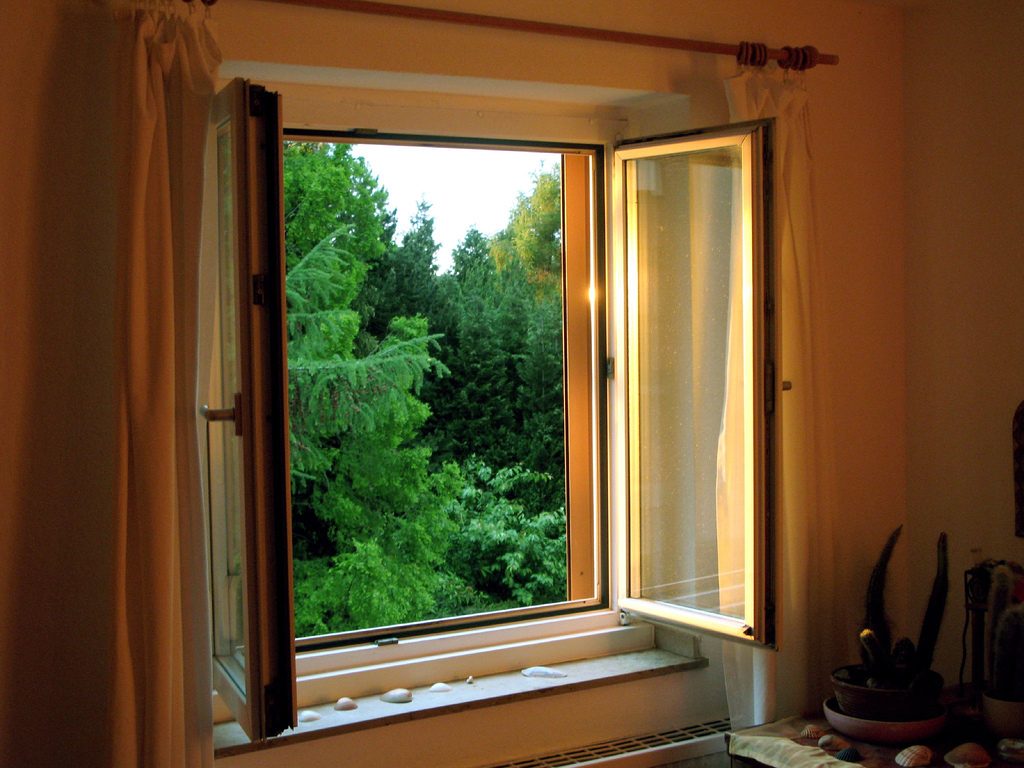Here’s a new question I just received for Alyssa, and it’s focused on her and her family’s home. She reports that her, her husband, and her two kids wake up every morning with runny eyes and a stuffy head. This has been going on for nearly a year now. She’s sure it isn’t seasonal allergies.
Alyssa says no one is sick otherwise, and the issue typically clears up as soon as they leave for the day.
Poor Air Quality at Home
If this sounds familiar, you’re not alone. According to research by the EPA, the air in most of our homes is worse than it is outside. That’s because modern buildings are so well insulated (great for energy savings). Where this doesn’t work out so well is the lack of proper air flow.
Air flow clears out dirty, stagnant air on a regular basis. But when there’s no flow, all of the contaminants remain stagnant or are constantly being shuffled around.
Open Windows More Often

The easiest, quickest, and cheapest way to improve your home’s air quality? Open your windows more often. Windows are designed specifically for air flow. In the modern day however, air conditioning has taken prevalence. The problem is that AC simply recirculates dirty air – not replace it. This is the main reason why home air quality is so poor.
Instead, open up your windows when you’re at home (and the weather allows). Even if you keep them open for an hour or two a day, you’ll notice a big change in breathability.
Note: This won’t completely solve the problem, but it should make things a lot better.
Invest In An Air Purifier
Live in a hot climate and too stuck on your air conditioning? Maybe you have medical issues that make breathing problems more serious? Just tired of waking up being unable to breathe?
The most effective solution is to invest in a quality air purifier. Like your home’s AC unit, purifiers suck in and spit out air. The difference is that instead of just a simply air filter, they use highly-effective HEPA filters. That means getting rid of nearly all airborne particles.
The downside with air purifiers is that they can be expensive. A quality bedroom unit will run $150-$200+. An air purifier for a spacious living room/wing or a small home/apartment can run $500-600+.
The good news is that this typically solves most people’s air quality-related issues within days.
My Final Thoughts
Thanks again for your question Alyssa. I hope this helps you, as well as the rest of you readers. Living with poor home air quality is a health risk, but one we face way too often. Thankfully we don’t have to.
Keep those questions coming in and I’ll keep on answering them!
